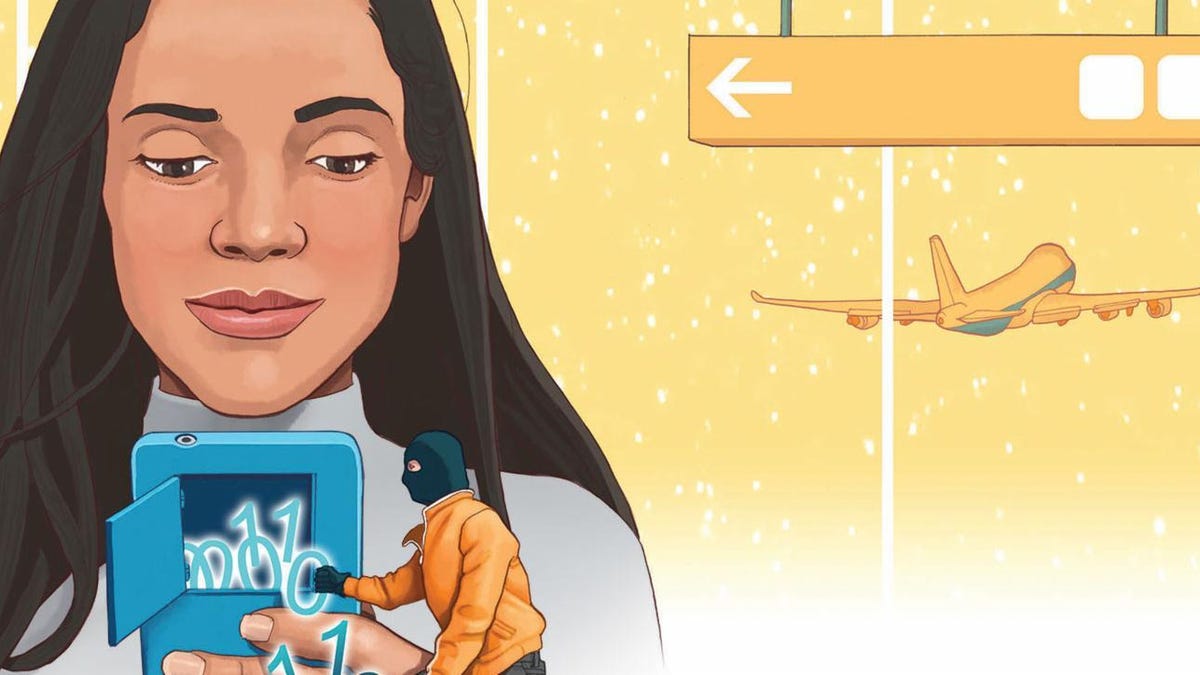Traveling for the holidays? Here's how not to get hacked
Ask Maggie offers some tips on keeping your personal data secure while on the road this holiday season.

Dear Maggie,
My family is traveling over the holidays. Any advice for safe web surfing while on the road?
Thanks,
Insecure about security
Dear Insecure,
Some of the busiest travel days of the year in the US are over the Thanksgiving and winter holidays. And that means lots of people at airports using their
smartphones
to surf the net and charging their devices ahead of a long flight. That makes airports prime targets for hackers.
Here are a few tips to help you and your data stay safe.
1. Never use a public charging station.
Period. Plugging directly into a public charging USB port can put you at serious risk of "juice-hacking." That's when hackers use that same USB connection to transfer malware directly to your device and access your email, text messages, photos and contacts. Some can even take command of your camera to record everything you type and look at.
What can you do?
• Use your own USB cable and AC adapter to plug directly into a power outlet.
• Carry USB battery packs that are already charged and ready to go.
2. Beware of free public
Wi-Fi
.
What makes free Wi-Fi convenient to use is also what makes it dangerous. The most common way hackers threaten public Wi-Fi is through man-in-the-middle attacks, putting themselves between you and the connection point. Hackers can then access every piece of information you send out.
What can you do?
• Use a
VPN
, which lets you set up your own private network on public Wi-Fi, shielding your online activity from prying eyes.
• Visit only encrypted websites. Look for HTTPS at the beginning of the URL instead of HTTP.
• Use your device's 4G LTE connection instead of public Wi-Fi. Yes, that will come out of your data plan, but 4G is safer because your carrier authenticates the connection and encrypts the data traveling over it. And if your plan allows it, you can also turn your phone into a personal hotspot that your laptop and other mobile devices can use, too.
See more great stories from CNET Magazine.
3. Turn off GPS, Wi-Fi and
Bluetooth
.
This prevents your device from inadvertently connecting to a network or device that has malicious intent.
4. Encrypt.
Encryption scrambles data, making it impossible for unauthorized readers to make sense of it. It's easy to encrypt your device with
Google
's or
Apple
's security setup. It's especially important when you're traveling and your phone and tablet are at their most vulnerable to being lost or stolen.
Bottom line: Traveling during the holidays can be stressful anyway. Don't let the bad guys take the fun out of what's supposed to be a time of joy.
This story appears in the winter 2018 edition of CNET Magazine. Click here for more magazine stories.
CNET's Gift Guide: The best place to find the perfect gift for everyone on your list this season.
Best Black Friday 2018 deals: The best discounts we've found so far.

